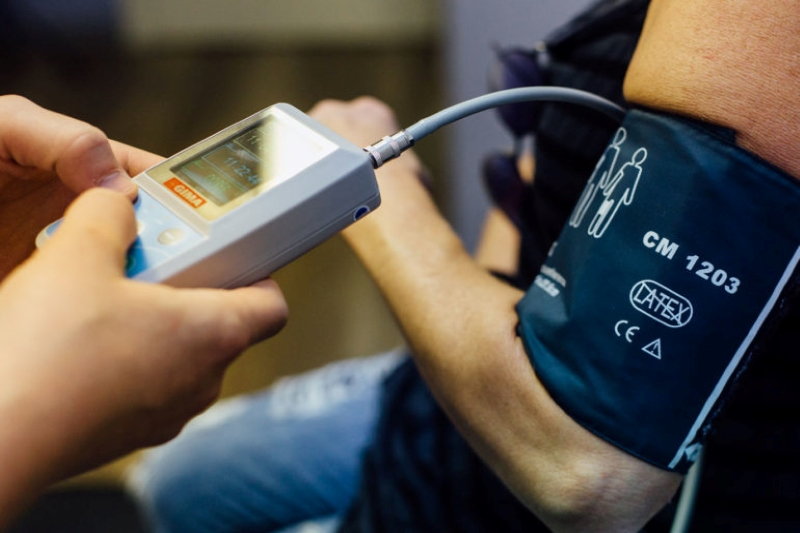
Holter blood pressure: everything you need to know about this test
Let’s talk about Holter pressure: there are many people who suffer from ‘blood pressure’, as it is commonly called
In reality, one suffers from pathologies linked to blood pressure that is too low or too high, a pressure that can change during the course of the day even in those who do not suffer from any particular pathology.
A change in blood pressure during sleep or at a particular time when one is frightened or emotional is completely normal.
In other cases, however, if one is very overweight or suffers, for example, from diabetes or other diseases, monitoring blood pressure parameters is essential to safeguard one’s health.
A test, the Holter pressure monitor, is used to monitor blood pressure.
What is the Holter Pressure Test
As already mentioned, the Holter blood pressure test is a diagnostic test used to monitor blood pressure over a 24-hour period at regular intervals.
Basically, one is equipped with a portable sphygmomanometer which then allows one to record the various values during the monitoring day.
The instrument you use to collect the data is just like the sphygmomanometer you use at home, or at the hospital, but has the added bonus that it is fully automatic.
Generally, it is a small device that is tied around the waist with a belt and connected with a band that encircles the arm.
At regular intervals, usually 30 minutes, the band is activated and detects the blood pressure.
These parameters are then recorded in the internal memory and downloaded when the test is completed.
To carry out this test, a request is made by the treating doctor, you then go to the hospital where the test is carried out, the device is programmed and then you can carry out all your daily activities normally, in fact, it is recommended that you do exactly what you do every day so that the result is as accurate as possible.
When the Holter blood pressure test should be performed
This type of test is not suitable for everyone, although it is free of contraindications.
The Holter blood pressure test is a test that is carried out specifically for people who have particular pathologies, whether chronic or sudden, and who show sudden, sharp changes in blood pressure related to these pathologies.
A sporadic jump in blood pressure, perhaps following a strong emotion, fear, state of anxiety or transient malaise, is not sufficient reason to request a Holter.
On the other hand, anyone showing abnormal symptoms should undergo such a test, especially if they are of a certain age.
Among the subjects who are most frequently subjected to a diagnosis such as the Holter are hypotensives, hypertensives, subjects who have experienced syncope, heart attacks, ischaemia, aneurysms, and those suffering from severe anxiety.
Preparation for the test
This test does not require much preparation, the important thing is to wear comfortable clothes that do not interfere, because they may be too tight, with the measurements of the device.
This, after being positioned, is calibrated, after which it is ready for use.
Obviously, the device must not be removed or bumped, no great effort must be made and, of course, no showering.
Read Also
Emergency Live Even More…Live: Download The New Free App Of Your Newspaper For IOS And Android
Twenty-Four-Hour Ambulatory Blood Pressure Monitoring: What Does It Consist Of?
Full Dynamic Electrocardiogram According To Holter: What Is It?
Hypertension: Symptoms, Risk Factors And Prevention
Organ Complications Of Hypertension
How To Conduct Antihypertensive Treatment? An Overview Of Drugs
Blood Pressure: What It Is And How To Measure It
Aetiological Classification Of Hypertension
Classification Of Hypertension According To Organ Damage
Essential Hypertension: Pharmacological Associations In Antihypertensive Therapy
Treatment Of High Blood Pressure
Heart Failure: Causes, Symptoms And Treatment
The Thousand Faces Of Vascular Disease
Blood Pressure: When Is It High And When Is It Normal?
Metabolic Syndrome: Why Not To Underestimate It
Endocrine And Metabolic Emergencies In Emergency Medicine
Drug Therapy For The Treatment Of High Blood Pressure
Assess Your Risk Of Secondary Hypertension: What Conditions Or Diseases Cause High Blood Pressure?
Holter Monitor: How Does It Work And When Is It Needed?
What Is Patient Pressure Management? An Overview
Head Up Tilt Test, How The Test That Investigates The Causes Of Vagal Syncope Works
Cardiac Syncope: What It Is, How It Is Diagnosed And Who It Affects
Holter Blood Pressure: What Is The ABPM (Ambulatory Blood Pressure Monitoring) For?
Sinus Tachycardia: What It Is And How To Treat It
Emergency Room Access: Neurology Emergencies


